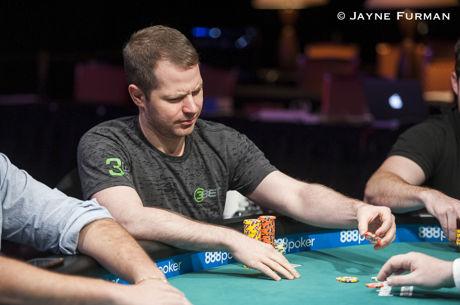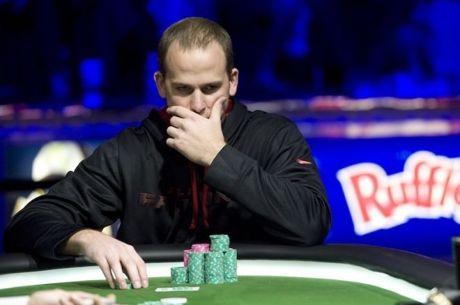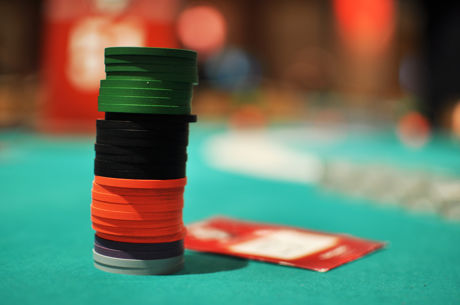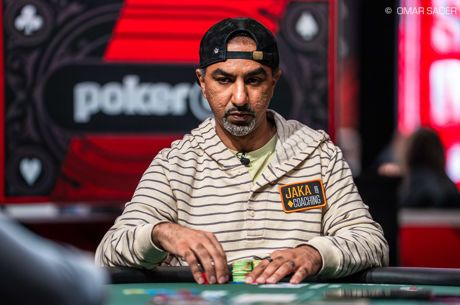Tournament Strategy: Defending a Short Stack
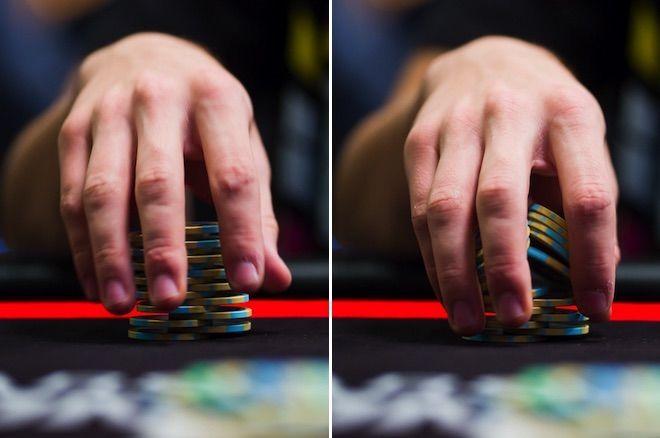
Tournaments are not all about survival. They are about making money.
Survival obviously helps in that effort. And busting with a weak hand facing a strong range never feels good.
However, there are many short-stacked situations in which we must defend our big blind with a wide, weak range and then do exactly that �� risk it all. What follows is a hand that allows us to explore that very idea.
Deep, But Not Deep
Recently a friend of mine was deep in the special seventh anniversary edition of the Sunday Storm on PokerStars, an $11 buy-in event with a $1 million guaranteed prize pool.
He had gotten through a five-figure field and was now a short stack with 50 left. Despite having outlasted 99 percent of the players, he was not exactly deep yet. The field still needed to be cut in half three more times before the money would significantly change his year and bankroll.
With 10 big blinds and the average nearly 25 BBs, our hero was already guaranteed a handsome $1,400 return on his small investment. In this situation (one that doesn't come around that often), players need to steel themselves to risk busting out in hopes of getting to those final six spots where the money gets disproportionately big.
This example is extreme, and you should keep in mind that often the big money will be in even fewer spots �� say, the top four, three, or even two.
The Mighty Four-Six Offsuit
A recreational big stack was second to act and opened for the minimum, then it folded around to our hero who was down to nine big blinds total, one of his BBs already being in the pot. When he has 10x9x-offsuit or any two suited cards, defending seems clear. But 4x6x-offsuit?
In defense of his defense here, he is unlikely to be dominated, and he is a little bit connected.
Either way, he called.
Flop 7-4-3 Rainbow
Our hero has flopped quite well given the stacks and the situation. Moreover, he has a perfect amount behind to risk with a check-raise all in. His opponent would be right to assume this flop is difficult for the big blind to have hit, so he can count on a continuation bet following, probably around two big blinds. Then our hero will be able to push his last eight big blinds stack across the line.
Moreover, consider his equity when called. Against the overpairs 8x8x through AxAx he has 33 percent equity, 10 outs twice. This should constitute a majority of the early position player's bet-calling range. Our hero is only really in trouble against 5x5x, 6x6x, and 7x7x, and he blocks half of the pocket sixes combinations.
In the actual hand our hero checked and the big stack moved all in for an overbet. What now?
Things Have Changed
After that preface about having to risk it all, let me now add a caveat. We want to risk it all with fold equity. We want to make the last bet, particularly when we are far from a lock on the hand.
Things are significantly different now that our opponent had told us that in order to commit to the hand we must call off all our chips.
We know our hand, but what does our opponent have? It seems unlikely the EP player would make this bet with any set or a hand that seems invulnerable, such as aces or kings. At the same time, there are not too many obvious bluffs. Would our opponent really just rip it in with a QxJx-suited or AxKx-offsuit? Probably not.
There are two draws out there that we can beat, Ax2x and Ax5x. We crush ace-deuce here, and have 60 percent equity against ace-five. Both would make some sense to play this way, since they have equity but would hate to bet-call it off.
Decision Time
Despite the fact that we can beat hands in our opponent's range, I feel against this action we have to fold. Our opponent took the big risk before we could. Most often in a big field, small buy-in tournament such as this, I think when we call our stack off here we will be surprised to see two nines or two tens that liked the board and were happy to go with it.
In the right spirit my friend made the fateful call and was shown, unfortunately, Ax7x, another hand happy to put the money in, but one that feels exceptionally vulnerable, especially in the hands of a recreational player making a first deep run. The 10 outs twice did not come.
Conclusion
Ultimately in a spot such as this, my friend called before the flop because he felt his opponent to be a weak player. Whether that is true or not, I feel this hand is a shade too weak to call. We have to draw the line somewhere, after all �� it may be around 7x6x-offsuit for me. Then we were presented with a great flop, which could lead to one of our ideal situations, getting to check-raise all in with equity.
But that opportunity did not actually come because our opponent would have had to continuation bet a normal size. In these spots we tend to call, see the flop, and think, well, this is what I was hoping for, then go on to ignore any other information that gets thrown our way.
A careful balance has to be struck between being willing to bust and diving headfirst into oblivion. On balance, I think my friend got caught doing the latter here.

